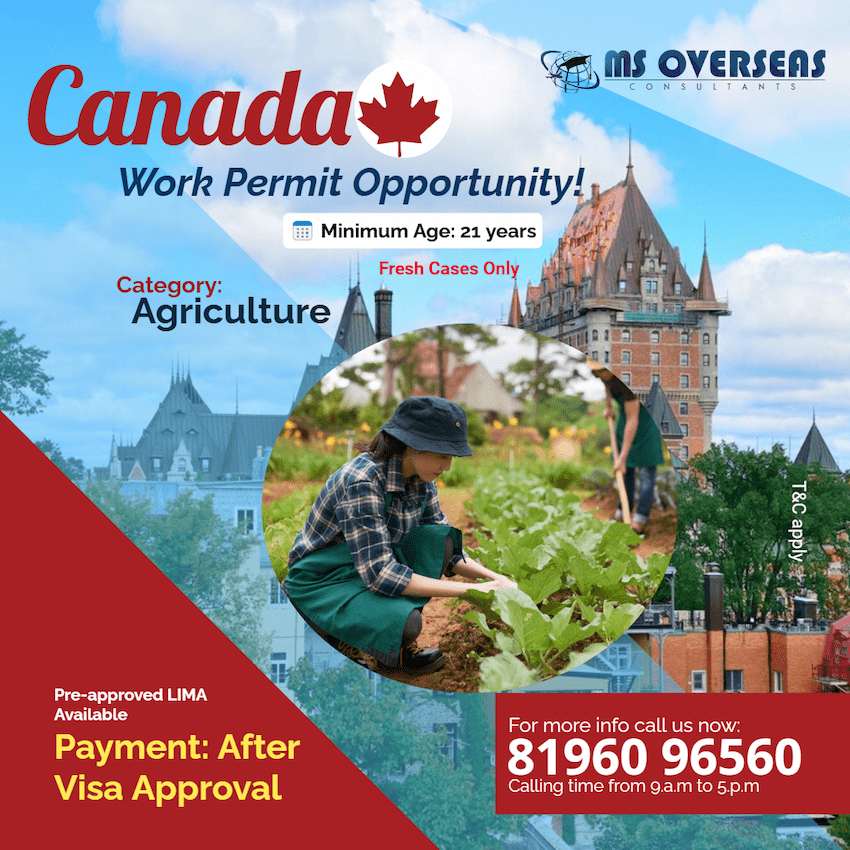Canada’s commitment to welcoming skilled immigrants continues to shine through the latest Express Entry draw results, released by Immigration, Refugees, and Citizenship Canada (IRCC). In a move that brings more opportunities for foreigners to become permanent residents, the Canadian government has issued new invitations under the Provincial Nominee Program (PNP) of the Express Entry system. Express Entry Draw Results
Highlights of the Latest Express Entry Draw
The most recent round of draws took place on June 19, 2024, marking another significant step in Canada’s ongoing efforts to attract skilled workers from around the world. Here are the key details:
- Number of Invitations Issued: 1,499
- Lowest CRS Score: 663
- Date and Time of Draw: June 19, 2024, at 14:37:26 UTC
- Tie-Breaking Rule Date: January 19, 2024, at 10:10:40 UTC
This means that candidates who had the lowest score of 663 or higher and submitted their profiles before January 19, 2024, received invitations to apply for permanent residence.

Previous Draw Insights
The previous Express Entry draw under the PNP took place on May 31, 2024, where 2,985 invitations were issued. The lowest-ranked candidate in that draw had a CRS score of 676. These regular draws demonstrate Canada’s ongoing dedication to bringing in skilled immigrants who can contribute to the economy and cultural diversity of various provinces and territories.
Understanding the Provincial Nominee Program (PNP)
The PNP is designed to attract individuals who have the skills, education, and work experience needed to support the economy of a specific province or territory. Each province and territory in Canada has its own unique immigration programs tailored to target specific groups, including:
Students:
Programs designed to retain graduates from Canadian educational institutions.
Businessmen:
Opportunities for entrepreneurs and investors looking to start or invest in Canadian businesses.
Skilled Workers:
Pathways for professionals with experience in high-demand occupations.
Semi-Skilled Workers:
Options for those in occupations requiring less formal education but significant work experience.
The Comprehensive Ranking System (CRS)
The CRS is a points-based system used by the Canadian government to assess and rank candidates in the Express Entry pool. Points are awarded based on various factors, including:
- Age
- Education
- Work Experience
- Language Proficiency
Candidates with the highest scores are invited to apply for permanent residence during Express Entry draws. The cut-off score varies with each draw, reflecting the pool of candidates and the needs of the Canadian labor market at the time.

How Express Entry Works
Express Entry is a streamlined system for managing applications for permanent residence from skilled workers. It encompasses several programs:
Federal Skilled Worker Program:
For individuals with skilled work experience in managerial, professional, or technical jobs.
Canadian Experience Class:
For those with skilled work experience in Canada.
Federal Skilled Trades Program:
For qualified tradespeople with experience in construction, industrial, electrical, and other trades.
Provincial Nominee Program:
For individuals nominated by a province or territory.
Benefits of the Provincial Nominee Program
The PNP offers several advantages for candidates seeking permanent residency in Canada:
Provincial Support:
Receiving a nomination from a province or territory can significantly enhance your chances of being selected for permanent residence.
Tailored Opportunities:
Each province has specific criteria and categories, allowing candidates to find programs that best match their skills and experience.
Community Integration:
The PNP facilitates the integration of newcomers into the local communities and labor markets of specific provinces, fostering economic growth and cultural diversity.
Why Choose Canada?
Canada is renowned for its high quality of life, diverse and inclusive society, and robust economy. The country offers numerous opportunities for career growth, education, and personal development. By choosing Canada, immigrants can look forward to:
- Excellent Healthcare and Education Systems:
Access to world-class healthcare and educational institutions.
- Safe and Friendly Communities:
A welcoming environment for families and individuals alike.
- Beautiful Natural Landscapes:
Stunning natural beauty, from coastlines to mountains and lakes.

How to Improve Your CRS Score
If you are interested in applying for permanent residence through the Express Entry system, there are several ways to improve your CRS score:
Improve Your Language Skills:
Higher scores in language tests (IELTS, CELPIP) can significantly boost your CRS points.
Gain More Work Experience:
Additional work experience, especially in skilled occupations, can add valuable points.
Pursue Further Education:
Obtaining higher educational qualifications can increase your score.
Obtain a Provincial Nomination:
Being nominated by a Canadian province or territory adds 600 points to your CRS score, almost guaranteeing an invitation to apply.
The Application Process for Express Entry
The application process for Express Entry involves several key steps:
Determine Your Eligibility:
Before creating an Express Entry profile, you must check if you meet the eligibility criteria for one of the federal immigration programs.
Create an Express Entry Profile:
Provide information about your skills, work experience, language ability, education, and other details. This information will be used to calculate your CRS score.
Receive an Invitation to Apply (ITA):
If you are among the highest-ranked candidates, you will receive an ITA during one of the Express Entry draws.
Submit Your Application:
After receiving an ITA, you have 60 days to submit a complete application for permanent residence, including all required documents.
Wait for a Decision:
The IRCC will review your application and make a decision. If approved, you will receive confirmation of permanent residence (COPR) and instructions on how to complete your landing in Canada.
Understanding the Comprehensive Ranking System (CRS) in Detail
The CRS assigns points based on several factors, which are grouped into four main categories:
Core/Human Capital Factors:
Points are awarded for age, level of education, official language proficiency, and Canadian work experience.
Spouse or Common-Law Partner Factors:
Additional points are given if you have a spouse or common-law partner, based on their education, language proficiency, and Canadian work experience.
Skill Transferability Factors:
Points are awarded for a combination of education and work experience, language proficiency, and a Canadian certificate of qualification.
Additional Factors:
Extra points are given for factors such as a provincial nomination, a valid job offer, Canadian education, siblings living in Canada, and French language skills.
Tips for a Successful Express Entry Application
To increase your chances of receiving an ITA, consider the following tips:
Stay Up-to-Date:
Regularly check the latest Express Entry draw results and updates on the IRCC website.
Seek Professional Advice:
Consult with an immigration consultant or lawyer to ensure your profile is as competitive as possible.
Prepare Thoroughly:
Gather all necessary documents and ensure they are complete and accurate before submitting your application.
Be Patient:
The immigration process can take time, so be prepared for possible delays and stay patient throughout the journey.
Conclusion: The latest Express Entry draw results highlight Canada’s ongoing commitment to attracting skilled immigrants who can contribute to the country’s economic growth and cultural diversity. Whether you are a student, skilled worker, or entrepreneur, Canada offers a pathway to permanent residence through the Provincial Nominee Program and other Express Entry streams.
Canada’s dynamic immigration system continues to provide opportunities for individuals and families looking to build a new life in one of the world’s most welcoming countries. The Provincial Nominee Program, in particular, is a key part of this system, enabling provinces and territories to address their specific economic needs by selecting candidates who are best suited to thrive in their local labor markets.
By understanding the Express Entry system, the Comprehensive Ranking System, and the various immigration programs available, you can better navigate the process and improve your chances of success. The journey to becoming a permanent resident of Canada is a significant step, but with careful planning and preparation, it is an achievable goal.
Contact us: Are you interested in applying for a tourist visa, study permit, or work permit in Canada? Contact us today for free expert advice! Our team of immigration professionals is here to guide you through the process and help you achieve your dream of living in Canada.

Disclaimer: This blog post is intended for informational purposes only and does not constitute legal advice. Immigration policies and procedures can change frequently, and it is important to consult with an immigration professional or refer to the official IRCC website for the most current information.
Source: www.financialexpress.com
- Navigating Canada’s New 2024 Student Visa Landscape: What International Students Need to Know
- Fulfilling Dreams in Canada: From Aspiration to Reality
- Unlock Your Study Dreams in Canada – Visa Without IELTS, No GIC, and More!
- Breaking News: IRCC Enforces Significant Fee Increases for Canada PR Visa Applications
- Canada’s Minimum Wage Update: Essential Insights for April 2024
- Future Changes to Canada’s Post-Study Work Rights Program: What International Students Should Know
- Canada Introduces New Immigration Policies to Lower Temporary Resident Numbers by 2027
Also read:
- Lightning vs. Maple Leafs: A Riveting Rivalry in the NHL
- Ready for Daylight Saving Time 2024? Here’s What You Need to Know Before We ‘Fall Back’
- Embark on Your Canadian Journey: 10 Effective Strategies to Boost Your CRS Score for Immigration
- Canada’s Temporary Public Policy for Foreign Nationals Affected by Wildfires in 2024
- Goodbye to Port of Entry PGWPs: How International Students Can Apply Online for Work Permits in Canada
